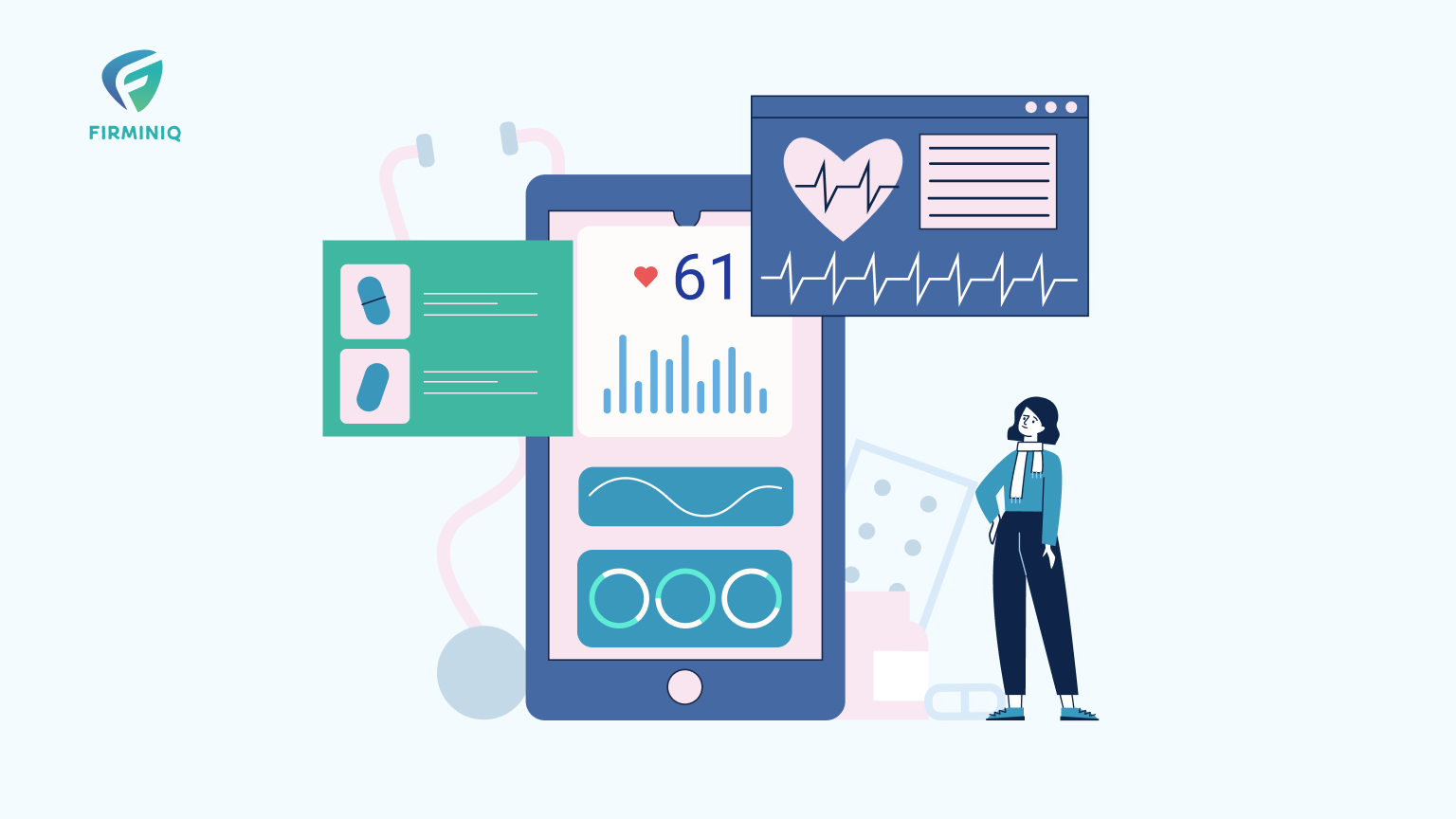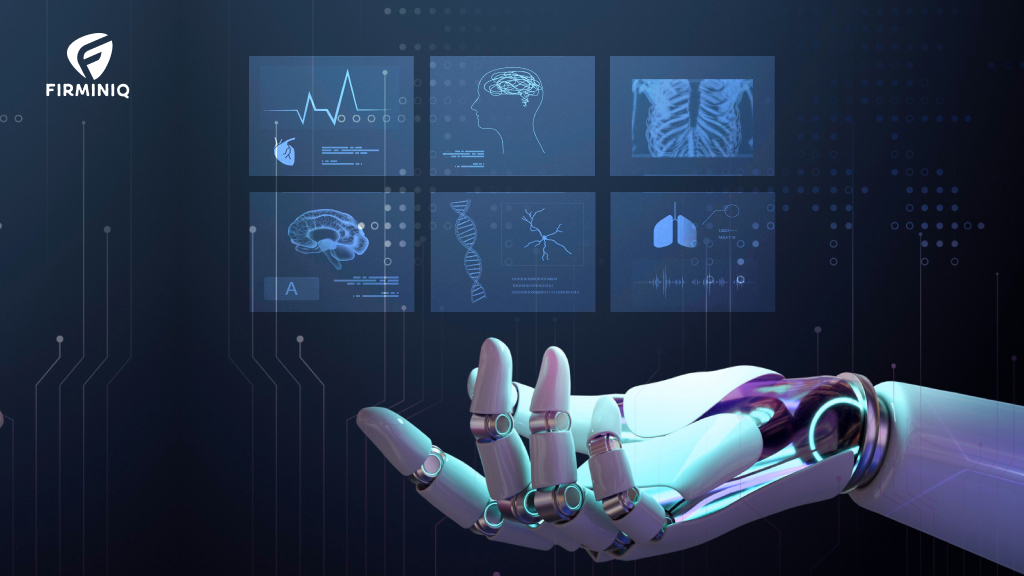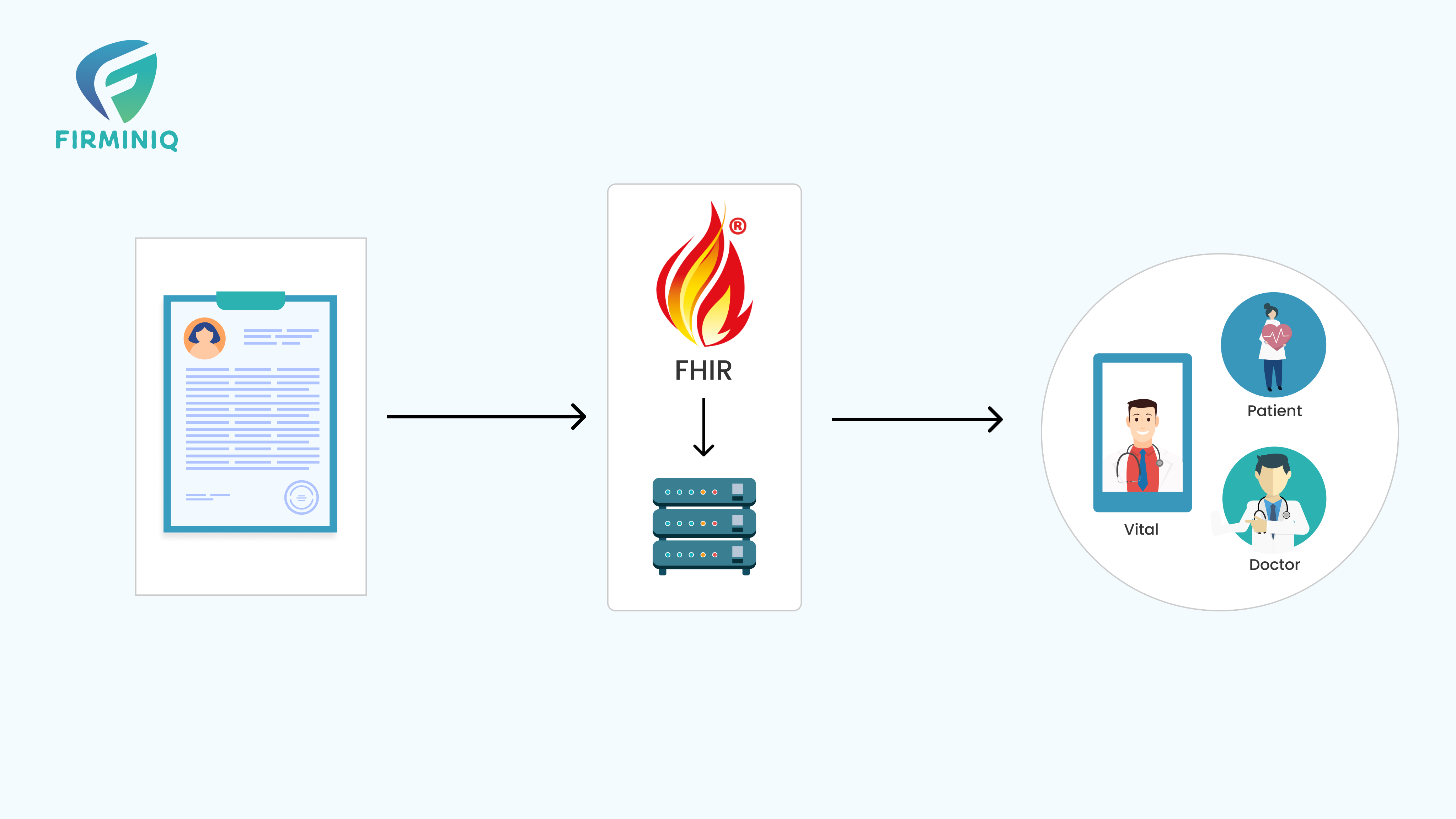The digital era has brought about transformative changes across various industries, with mobile applications playing a pivotal role in reshaping how we engage with services. Healthcare is one of the industries where the apps offer convenience, accessibility, and efficiency in the healthcare landscape.
The health-tech industry is undergoing a surge, characterized by expansion and significant revenue forecasts, which are redefining the sector’s landscape. “The global digital health market size is expected to reach USD 809.2 billion by 2030, and it is expected to expand at a CAGR of 18.6% during the forecast.”- Grand View Research
The number signifies a profound redefinition of the entire healthcare landscape. As the stakeholders seek seamless and personalized experiences, mobile apps become an integral part of the landscape. Healthcare mobile apps offer an effortless and convenient means to handle medical records that enhance patient involvement and elevate the overall healthcare experience. The amplification of mobile applications has significantly strengthened the healthcare industry.
The scope of mobile healthcare applications is expansive, benefiting both healthcare providers and patients alike while ushering in a new era of accessibility, efficiency, and personalized care. The blog helps you explore the transformative role of mobile applications in empowering the healthcare sector.
Benefits of Mobile Apps that are Transforming the Healthcare Industry
While mobile apps have held immense potential for numerous years, the features such as quick access to insurance plans and medical history gained even greater importance during the COVID-19 pandemic. The healthcare organizations during the pandemic were broadening the range of services to offer more benefits via mobile applications while ensuring the patient’s needs are addressed.
Let us throw some light on the benefits healthcare mobile apps offer, that are transforming the healthcare industry.
1. Remote Patient Monitoring
Remote Patient Monitoring when facilitated with mobile applications brings a transformation in healthcare that benefits both users and care providers. With the integration of sensors and devices, the apps enable real-time and continuous monitoring of patient conditions.
RPM is quite efficient for chronic care management as it detects early signs of symptoms and eliminates the need for hospitalization for patients. For example, a patient with diabetes can have their glucose levels monitored throughout the day, so that they can make changes to their lifestyle accordingly. The engagement of patients in their healthcare journey is enhanced this way. Patients receive personalized care, insights and get in-depth details of the activities of patients. Through the utilization of mobile applications, RPM not only transforms patient care but also advocates for a patient-centric approach.
2. Precise Patient Diagnosis
Mobile applications allow precise patient diagnosis by offering healthcare professionals quick access to accurate data. It promotes a quicker and accurate decision-making process and eliminates emergencies. This real-time access provides healthcare providers with a comprehensive overview of the patient’s health status, allowing for more informed decision-making.
For example, during the COVID-19, the healthcare apps enabled the service providers to instantly access patient’s records, their medical history allowing for a rapid and precise diagnosis. This adaptability was crucial in managing and containing the spread of the virus.
3. Medication Adherence
Medication adherence is one of the critical aspects that help patients manage their chronic and other conditions for positive health outcomes. Mobile apps have features that can efficiently be used to remind patients of their medications.
The apps send personalized reminders to the users at scheduled times so that they can take their medications on time. The reminders can be configured based on the usage and timing prescribed by the physicians.
One of the examples is Medisafe, which sends reminders to the patients and their families for each and every medication while sending notifications to the user’s smartphone or other connected devices.
4. Enhanced Data Collection and Analytics
Healthcare mobile applications play a crucial role in gathering diverse health-related information. It creates an extensive dataset that forms a comprehensive digital representation of individual health profiles.
To analyze this data, AI is employed in healthcare that uses advanced algorithms to derive insights and enhance diagnostics, predictive analytics, and treatment plans. This integration of healthcare mobile apps with AI underscores an approach that can efficiently manage and derive valuable insights from the data to ensure intelligent decision making.
5. Streamlined Payment Process
Simplified and efficient bill payments stand out as a pivotal advantage brought about by app development in healthcare. It eliminates the need for patients to endure long queues to make bills and payments as compared to traditional methods where individuals used to stand in queues to settle the payments.
It enhances the overall experience of patients and contributes to more efficient and streamlined administrative processes for the healthcare providers.
An example includes Zocdoc which is a healthcare appointment booking app with features that not only help in appointment scheduling but also streamline the entire process, from booking to payment while providing a user-friendly patient experience.
Concluding Thoughts
The above-mentioned benefits highlight the transformative impact of mobile apps in healthcare, ranging from enhancing patient engagement to improving medication adherence, streamlining administrative tasks, simplifying payment processes and more. The integration of advanced features is reshaping the healthcare landscape, making it more patient-centered, efficient, and accessible.
At FIRMINIQ, we have crafted numerous innovative healthcare mobile applications for our clients. As a pioneer in this field, our goal is to assist medical organizations and providers in crafting exceptional healthcare solutions that has strong customer acceptance and appreciation.
An exemplary case is our collaboration with one of the clients, where we developed a connected health mobile app solution for users to manage their heart health. The application enabled healthcare infrastructure consisting of doctors, hospitals, patients, and healthcare support staff to work together and eliminate heart attacks.
If you are looking forward to developing such mobile applications for your healthcare business, reach out to us today.






